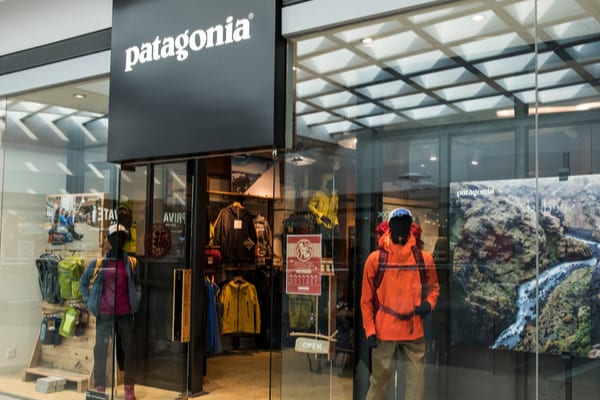In the past few years, Patagonia, the apparel brand long beloved by climbers, moutain bikers and other outdoorsy folk and now become a favorite or urban fashion insiders, has it’s cemented itself in the public imagination as a whole lot more. At a time when Americans less faith than ever in our public institutions and corporations, Patagonia is remarkable for the way it endeavors to face our collective fears head-on, whether that means setting the bar for sustainable clothing production or suing the Trump administration over the reduction of public lands.
While sustainability has become a buzzword in fashion relatively recently, Patagonia’s been prioritizing the environment for years through its philanthropy and sustainable manufacturing. Lately, wildfires near the Patagonia headquarters in Ventura, California resulted in 75 percent of employees needing to be evacuated, a situation that only served to underscore why the brand places such a huge emphasis on environmental preservation.
With that in mind, Patagonia announced its plan to donate 10 million dollars that it saved as a result of Trump’s tax cuts to environmental grassroots organizations late last year, citing the fact that something like three percent or less of philanthropic giving goes to environmental causes. The brand has also announced a plan to be completely carbon-neutral by 2025, an initiative that includes not only its offices and the factories it owns and operates, but its entire supply chain as well — an almost unheard-of goal in the apparel industry.
While Patagonia’s decision to sue the Trump administration over the reduction of two national monuments might be the brand’s boldest political move yet, the company has also worked on bipartisan initiatives to give employees time off to vote, and publicly endorsed individual candidates that are “mindful of what’s happening with air, water and soil” running for office in states like Nevada and Montana. In some close races, Patagonia’s support has made a real difference in the outcome of local elections. Though dabbling in politics can be risky for some brands, Patagonia still relies most heavily on outdoors enthusiasts for the majority of its business, which means recognizing that fighting to keep wild lands wild isn’t likely to alienate core customers.
Though it may not sound as sexy as suing the president, sustainable supply chain innovation is where Patagonia has focused a good deal of its resources as it looks to make the world greener. For Patagonia, that’s meant working with recycled cashmere, cotton and down, as well as helping factories attain Fair Trade Certification, which means that other clients of those factories benefit, too. More recently, it’s also involved working on a regenerative agriculture certification with a coalition of companies, employing regenerative agriculture, which is a way of farming that encourages biodiversity and enhances soil, as the natural successor to organic farming.
Even as other companies have faltered through clumsy attempts to play with politics and many legacy brands find themselves stumbling in a rapidly changing retail market, all these forays into socio-political and environmental causes have been a business boon for Patagonia, which has seen it’s seen its business continue to grow every time it takes a stand.
—
Photo Credit: lentamart / Shutterstock.com
